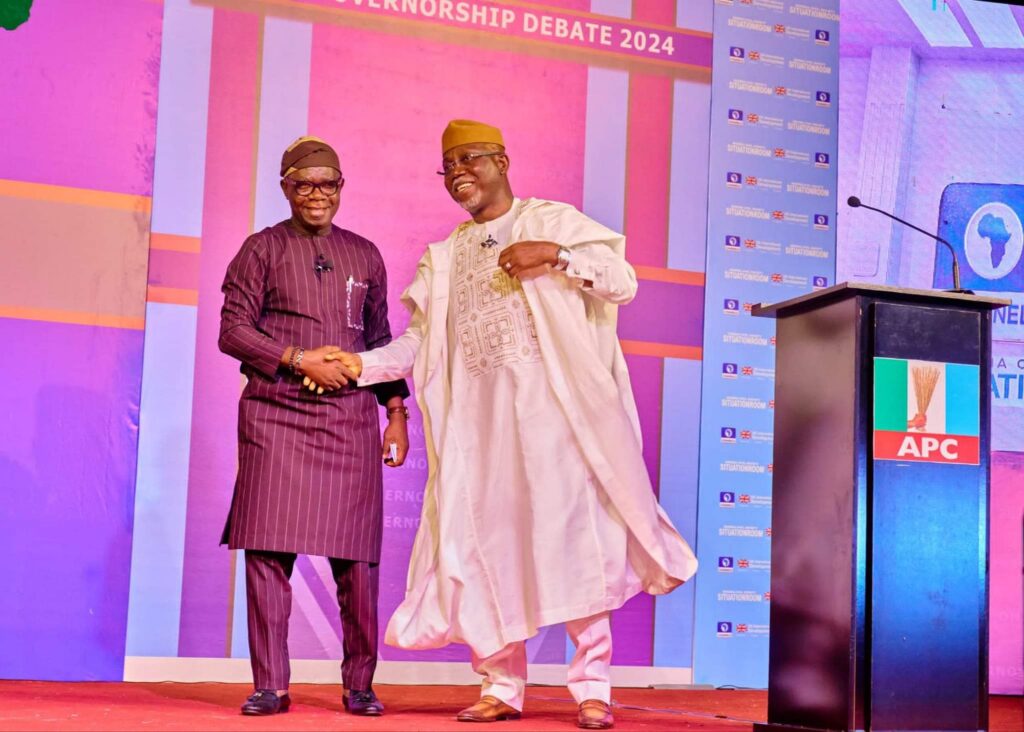Triangle News Media Editorial
Ondo 2024: A Pivotal Election in the Hands of Voters
Triangle News Media Editorial
As Ondo State gears up for its gubernatorial election, the political landscape is set to be dominated by the battle between two former deputy governors, Governor Lucky Aiyedatiwa of the All Progressives Congress (APC) and Agboola Ajayi of the People’s Democratic Party (PDP). While these two figures may be the most prominent candidates, the stakes of the election reach beyond the individuals themselves to the heart of Ondo’s future stability, governance style, and its unique, evolving political traditions.
This election, though framed as a “two-horse race,” captures a deeper dynamic at play in Ondo: the pressures of incumbency versus the demand for change, the tension between old alliances and new affiliations, and a politically aware electorate that has grown increasingly assertive.
At first glance, the advantages of incumbency seem to favor Aiyedatiwa, who not only has the resources of the state but also the support of a federal government controlled by his party, the APC. As governor, Aiyedatiwa has the machinery and reach to command loyalty across local and state levels. He has managed internal conflicts within the APC effectively, particularly with the notable withdrawal of legal challenges to his candidacy. The unity within the APC, which has absorbed influential defectors from the PDP and other parties, underscores his party’s commitment to retaining control.
However, incumbency is a double-edged sword. For Aiyedatiwa, this election may also become a referendum on his leadership and policies. While he has worked to unite the APC, Ondo voters will weigh his relatively short tenure’s accomplishments and may look critically at whether the APC’s governance has delivered tangible benefits. Voters are likely to judge Aiyedatiwa not just on the promises he makes but on the immediate impact of his governance, especially considering the country’s economic struggles and recent public dissatisfaction. The realities facing citizens are more pressing than ever, and incumbency could, for many, be more a liability than an advantage.
Meanwhile, Ajayi represents a compelling alternative. As a PDP candidate, he positions himself as the voice of a dissatisfied populace, drawing on grievances with the APC’s handling of the economy. Ajayi, also a former deputy under the late Governor Akeredolu, has honed his strategy around the belief that the state’s future should not be determined by incumbency but by competency. However, the PDP’s internal discord, spurred by a wave of defections and dissatisfaction within its ranks, challenges the party’s unity and could undermine Ajayi’s campaign. Nevertheless, Ajayi’s approach resonates with those who feel alienated by the APC and crave a fresh approach to governance.
The emergence of Olugbenga Edema, the New Nigeria Peoples Party (NNPP) candidate and former APC primary participant, has further complicated the race. With roots in the same locality as Aiyedatiwa, Edema’s defection from the APC and his appeal to disgruntled APC supporters reveal a fracture in what was once perceived as a united front. Although Edema’s base may be limited to specific locales, his presence in the race underscores the underlying political discontent and raises the stakes for both major parties. This fragmented dynamic in Ilaje Local Government, a critical region for Aiyedatiwa, introduces a new challenge to the APC’s assumed dominance.
Beyond the candidates, the election is also a reflection of a maturing political structure in Ondo, where zoning has become institutionalized. Both the APC and PDP have fielded candidates from Ondo South, reflecting an understanding that power should rotate within the state. The respect for this arrangement suggests a unique stability in Ondo’s politics, one where leadership is shared among senatorial districts and voters have a sense of equity in representation. This commitment to zoning, however, also puts pressure on both Aiyedatiwa and Ajayi, as the expectation is not only for their candidacy but also for their actions to reflect the best interests of their region.
In the midst of these dynamics, Ondo’s voters hold the ultimate power. They must choose between continuity with the APC, with all the advantages and challenges that come with incumbency, or a pivot towards the PDP, which promises a reimagined governance approach. This election could very well set a precedent for the role of incumbency and opposition in Ondo and may inspire other states wrestling with similar political struggles. As the clock ticks toward election day, the people of Ondo State stand as critical players in a contest that transcends individual ambitions, reflecting a larger story of political evolution, local pride, and the pursuit of a better future.

